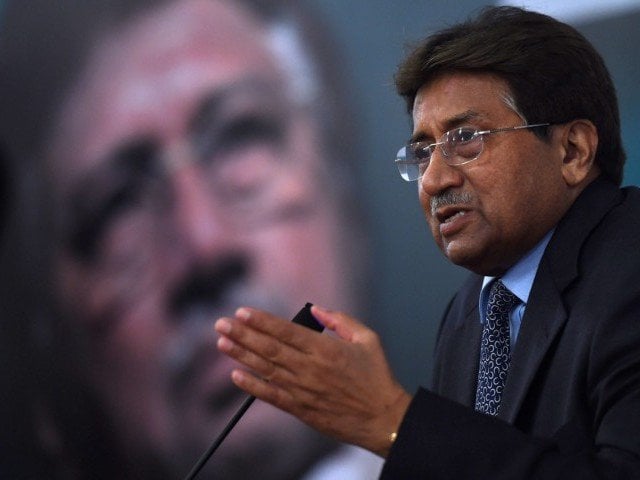
Niccolo Machiavelli (1469-1527), the Italian philosopher and father of modern political science, writes in The Prince that a statesman more often “acts on behalf of the community and is there to make difficult decisions on behalf of the subjects and therefore must be willing to let his own conscience sleep”. He further writes that the laws that govern the rise and fall of a state differ from the laws of religion and from those of personal morality. The state, he says, “has its own rules”, “its own code of behavior” and “its own reasons of being a State”, and all these must govern the actions of statesmen if they wish to succeed.
Machiavelli’s treatment of the state demands that in circumstances where men were selfish and evil and constantly giving in to “evil inclinations” the only defence left was the defence of the stato — the state. With Machiavelli “ends always justified the means” and if in the judgment of a ruler, an action of his, served the state he might as well undertake it. In essence what Machiavelli suggested was that a ruler could break his word (we now famously phrase it as a U-turn) if he considered that it served the state and public interests. For Machiavelli, the idea of the state was that “it was there to preserve order” and if power was usurped, centralised or utilised to serve that order in a very anarchic political environment influenced by an endless chain of cause and effect, then it was absolutely fine. Politics pays a heavy cost not only for maintaining no order but also in trying to create order in an orderless society like General Musharraf did. Unpopular leaders, unpopular political decisions and also unpopular governments hardly ever last. General Musharraf’s biggest mistake was that he started stepping on the “private advantages” of many stakeholders and all the “public rights” that he had planned and wanted to extend were sucked in by a very intolerant politics and its conductors whose space as a soldier he should not have occupied in the first place.
A true Machiavellian in the sense of conduct of his politics, the general always showcased the true Machiavellian way of “how a prince must act if he wishes to prevail”. However, on human nature the general failed to read Machiavelli’s political message of “human nature being both good and bad but for the purpose of politics we must assume it is bad”. Had he learnt this lesson in time, he would have worked out how politics and those who indulge in it tend to act in their own “selfish and short time interests”. That he got politically rebuked and stumped by the very politicians he extended the NRO to, speaks of how he paid a price of confusing the “treatment of State” with the “treatment of politics” and in the end left both untreated. He couldn’t decide on what should take priority — “first order in society then democracy or first democracy and then order in society”.
With all his political deficiencies he never meant to do any harm to the state. The very fact that he gave an NRO to the discredited politicians and tried to bring them back to Pakistani politics speaks of his democratic intent and political resolve to give politics back to democracy. General Musharraf like any soldier was “fixated with the enemy” and demonstrated little or no tolerance dealing with it both at home or abroad. He felt a soldier’s disdain on the cunning Indian access to and acquisition of our territory in Siachen and when the opportunity came he wanted to pay them back in the same coins. I am sure history will judge him as an utter failure both as a military man because he has nothing to show for his victories, and also as a politician for he was never a politician and a soldier, but what he did best was never fake and that was his outstanding quality which he even continues to demonstrate from a very sick bed in the UAE.
To General Musharraf an important aspect of his job was the personification of the state. He may be termed a horrible politician because he could never treat himself or the others with whom he came in contact with a fake sense of association, but he was never a bad statesman. He conducted politics on moral grounds — similar to how the developed world does today when it is not burdened under loads of constitutions and laws explained in thick constitutional volumes — and his was the politics of moral uprightness. The poorest of the poor countries have the thickest of the constitutional books, not because these countries and their inhabitants don’t understand law but only because they lack the moral uprightness to conduct their own state of affairs as well as affairs of politics and state in absolute fairness. Hiding behind the cover of the principle of “innocent until proven guilty” they retain enough money to pay any cost for any proof against their misdeeds being unearthed.
“Treason” is not an appropriate word to associate with General Musharraf for what he wanted to do or for what he lived for. In fact “treason” should not be associated with any leader who occupies the highest office to rule this country. At best it could be the “betrayal of trust” — the trust that the people and state impose on him. This country doesn’t deserve a military rule. It never deserved Ayub’s, Zia’s and Musharraf’s. But it also doesn’t deserve the kind of civilian rule that we have so far experienced. If order in society means the protection of a person’s rights, life, interests and property, then we remain as disorganised and disorderly under a civilian rule as we may have been under any military rule as well.
Call him anything but General Musharraf was not fake and there was too much Pakistaniyyat stuffed in him to commit anything close to treason.
Published in The Express Tribune, December 8th, 2019.
Like Opinion & Editorial on Facebook, follow @ETOpEd on Twitter to receive all updates on all our daily pieces.



1732105641-0/BeFunky-collage-(78)1732105641-0-165x106.webp)







COMMENTS (3)
Comments are moderated and generally will be posted if they are on-topic and not abusive.
For more information, please see our Comments FAQ